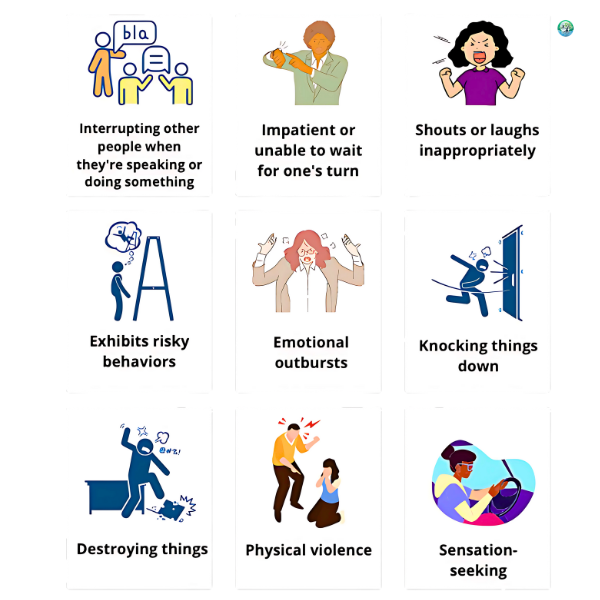
Dr Sathiya Ganesan’s
From Impulse to Insight — Helping Children Choose Safety, Calm, and Control.
Helping Young Minds Slow Down, Think Clearly, and Choose Safer Paths
Childhood and adolescence are periods of exploration, emotion, and boundary testing. But when curiosity turns into recklessness, and impulsivity leads to harm or danger, it may signal an underlying emotional or neurodevelopmental concern.
Risky and impulsive behaviors are often misunderstood as defiance — but in reality, they’re signs of inner distress, underdeveloped self-control, or unresolved trauma.
Dr. Sathiya Ganesan, Consultant in Child & Adolescent Psychiatry, provides specialized, empathetic care to help young people manage their impulses, understand their actions, and make healthier, safer decisions.
Understanding Risky and Impulsive Behaviours
Not Rebellion — A Brain Still Learning Regulation

Risk-taking is normal to a degree. But when behaviors become compulsive, dangerous, or emotionally driven, they can lead to serious consequences — emotionally, socially, and physically.
Common risky or impulsive behaviors include:
- Sudden outbursts of anger or aggression
- Running away or breaking rules
- Stealing, lying, or risky sexual behavior
- Substance experimentation or self-harm
- Dangerous stunts or thrill-seeking
- Speeding, skipping school, or online risks
These actions often stem from impulse control issues, trauma, low self-esteem, ADHD, or mood disorders.
Signs That Impulsivity May Need Clinical Support
- Frequent disciplinary problems at home or school
- Regret after actions but inability to stop repeating them
- Sudden mood swings or risky dares
- Getting into fights, legal trouble, or unsafe online behavior
- Inability to wait, think ahead, or follow through
- Poor academic performance despite potential
- Social difficulties due to unpredictable behavior
When risky behavior becomes a pattern, it’s time to look deeper — not punish harder.
Holistic, In-Depth Evaluation
Dr. Sathiya Ganesan begins with a detailed and child-sensitive evaluation to uncover the root causes of risky or impulsive behavior. This includes a psychiatric and emotional health screening, behavioral observation, and assessment of impulse control and executive functioning.
She explores the child’s trauma history, learning profile, and any co-existing conditions like ADHD or mood disorders. Academic performance, social relationships, and family dynamics are also carefully reviewed.
This comprehensive understanding helps tailor a plan that addresses the full emotional and behavioral picture — not just the symptoms on the surface.
Compassionate Communication and Behavior Awareness
Children who act impulsively are often labeled as “troublemakers,” which only deepens shame and defensiveness.
Dr. Ganesan creates a space where children feel seen, not scolded. Through trust-building and emotionally safe conversations, he helps young people explore their actions without blame.
She teaches them to understand the link between thoughts, feelings, and behaviors in age-appropriate ways, helping them recognize triggers and patterns. The result is an emerging self-awareness that forms the foundation for long-term change.
Expert Psychotherapeutic Interventions
Therapy is tailored to the child’s developmental level and emotional needs. Dr. Ganesan uses Cognitive Behavioral Therapy (CBT) to help children recognize and redirect impulsive thoughts, while also developing practical tools to pause and think before reacting.
Emotional regulation strategies, anger management, and frustration tolerance are taught through structured exercises and play-based learning. Mindfulness practices and grounding techniques help reduce emotional overload.
Family therapy is also integrated to improve communication, establish healthy limits, and reinforce progress at home. Together, these methods build emotional control, resilience, and better decision-making.
Judicious Use of Medications
In cases where impulsivity is driven by underlying neurodevelopmental or psychiatric conditions — such as ADHD, bipolar disorder, or severe mood instability — Dr. Ganesan may consider medication as part of the treatment plan.
Medication is introduced carefully, only when clinically necessary, and always in conjunction with therapy and parental involvement. The goal is to reduce extreme reactivity, improve focus, and create a stable emotional baseline that allows other therapies to work more effectively.
Lifestyle Coaching and Structured Habits
Helping children move beyond risky behavior involves reshaping their daily routines and internal coping mechanisms. Dr. Ganesan works with children to build predictable schedules, improve sleep hygiene, and channel their energy into positive outlets like sports, music, or creative arts.
Coping tools for stress, peer pressure, and boredom are taught through hands-on coaching. Children are encouraged to reflect rather than react, and to find safe, meaningful ways to express themselves. Over time, these new habits support emotional stability and personal growth.
Family Support and Safer Home Environments
Lasting change begins at home. Dr. Ganesan supports parents with practical, compassionate strategies to create safer, more structured home environments. He teaches caregivers how to set consistent, developmentally appropriate boundaries without escalating conflict.
Parents learn to respond to defiance with calm confidence, avoid power struggles, and reinforce positive behaviors. Guidance is also provided on managing digital use, peer influences, and risky situations. With family therapy and regular coaching, caregivers feel more empowered — and children feel more secure.

Why Choose Dr. Sathiya Ganesan for Risky Behaviour Recovery?
With deep expertise in child psychiatry, trauma-informed care, and behaviour regulation, Dr. Sathiya Ganesan offers more than just symptom management — he delivers healing, insight, and growth.
She’s care model is judgment-free, developmentally sensitive, and highly personalised. By integrating therapy, parent training, emotional skill-building, and when needed, safe medication use, he helps children regain confidence, self-control, and emotional balance.
With a long-term vision that empowers both the child and their family, Dr. Ganesan ensures that progress is sustainable, compassionate, and transformative.
When Risk Signals a Deeper Need — Help Them Choose a Safer Path
If your child is taking dangerous risks, acting without thinking, or struggling to control emotions or impulses, it’s time to listen — not just correct. Reach out to Dr. Sathiya Ganesan today to begin a personalized recovery journey that prioritizes safety, understanding, and long-term emotional strength.
Is impulsive behavior in children a sign of mental illness?
Not always. While impulsivity is a normal part of development, when it becomes severe or harmful, it may indicate ADHD, trauma, mood disorders, or other underlying conditions.
What causes risky behavior in teens?
Adolescents may engage in risk-taking due to brain development, peer influence, emotional pain, or lack of coping strategies. It often stems from unmet emotional or psychological needs.
Can these behaviors be treated without punishment?
Yes. Research shows that structured therapy, emotional coaching, and consistent boundaries are more effective than punitive approaches in managing risky or impulsive behavior.
Will my child need medication?
Only if clinically necessary. Medication is considered in cases involving ADHD, severe mood dysregulation, or other psychiatric conditions, and always paired with behavioral therapy.
How can I help my child at home?
Stay calm, set firm but kind boundaries, avoid power struggles, and use positive reinforcement. Dr. Ganesan provides tailored strategies and ongoing parental support to guide families through recovery.


